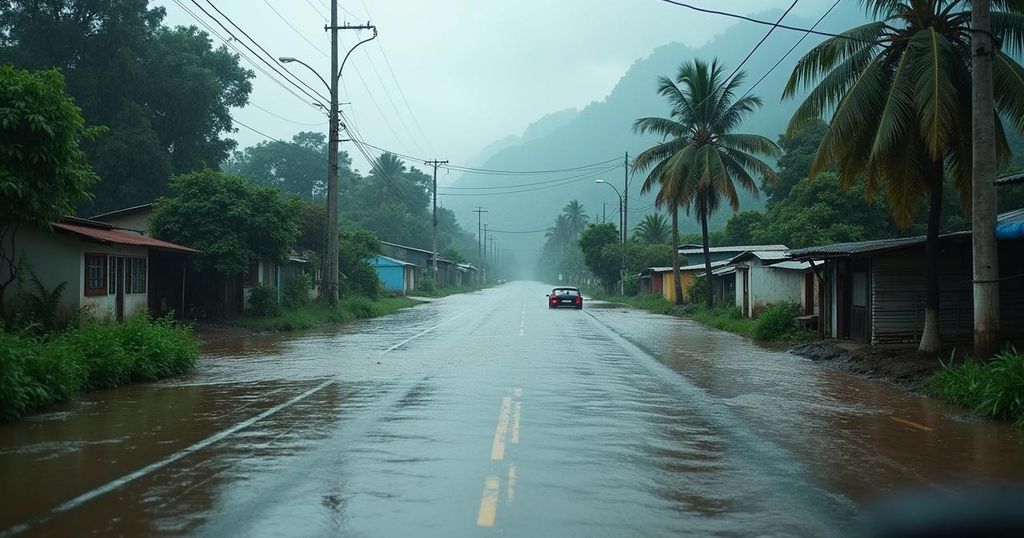Devastating Floods Sweep Through West and Central Africa, Displacing Thousands and Claiming Lives

Torrential rains have caused severe flooding in West and Central Africa, particularly affecting northeastern Nigeria, where more than 400,000 individuals have been displaced. The flooding has resulted in over 1,000 deaths across the region, exacerbating existing humanitarian crises. With local authorities overwhelmed, communities are struggling to respond to the disaster’s impact and to aid those in need.
Torrential rains have led to unparalleled flooding across West and Central Africa, severely affecting northeastern Nigeria and displacing over 400,000 individuals, as reported by the United Nations. Aerial imagery reveals extensive flooding as a result of a dam collapse in Maiduguri, the capital of Borno State, where dramatic scenes unfold including submerged homes and frantic escapes from a breached local prison. The floods have claimed the lives of more than 1,000 people this year alone, exacerbating already dire humanitarian conditions in Nigeria, Chad, Mali, and Niger. The flooding crisis, which has affected over four million people in the region, sees Maiduguri particularly hard hit, with a reported displacement of 600,000 residents. Local authorities are struggling to provide adequate assistance as the damages continue to accumulate, including the destruction of critical infrastructure such as bridges and dikes, underscoring the extreme vulnerability of regions like sub-Saharan Africa to climate-related disasters.
West and Central Africa experiences frequent severe weather events, yet the recent floods have been particularly devastating, attributed to ongoing climate changes. The growing incidence of torrential rains poses increasing threats to communities already facing socio-economic hardships. Countries such as Nigeria and Chad have been particularly affected, struggling to cope with a combination of natural disasters and man-made crises, including insurgencies and political instability. Estimates indicate that adaptation to extreme weather will require substantial financial resources, further straining already limited governmental budgets in these regions. The humanitarian response has become critical, as organizations scramble to provide relief to the thousands displaced by the flooding, some of whom have reported receiving little to no assistance since the disaster struck.
In summary, the catastrophic flooding across West and Central Africa represents a significant challenge, claiming lives and displacing thousands, with Maiduguri serving as a poignant example of the widespread devastation. The situation underscores the need for immediate international assistance and a robust response to the growing impacts of climate change in vulnerable regions. As local authorities and communities continue to cope with the aftermath, proactive measures and infrastructure improvements will be essential to mitigate the effects of future disasters.
Original Source: apnews.com






